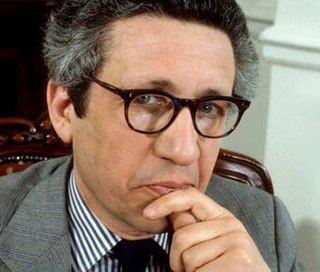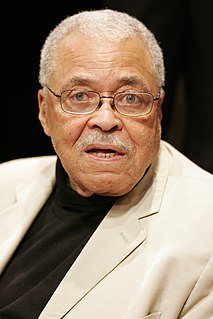A Quote by Chris Tarrant
Without the railways, the Holocaust wouldn't have happened. I don't actually think the second world war would have happened without them.
Related Quotes
Had the Holocaust happened in Tahiti or the Congo, as it has; had it happened in South America, as it has; had it happened in the West Indies, as it has - you must remember that within fifty years of Columbus's arrival, only the bones remained of the people called the Arawaks, with one or two of them in Spain as specimens. Had the Holocaust committed under the Nazis happened somewhere else, we wouldn't be talking about it the way we talk about it.
The Work reveals that what you think shouldn't have happened should have happened. It should happened because it did, and no thinking in the world can change it. This doesn't mean that you condone it or approve of it. It just means that you can see things without resistance and without the confusion of your inner struggle. No one wants their children to get sick, no one wants to be in a car accident; but when these things happen, how can it be helpful to mentally argue with them? We know better than to do that, yet we do it, because we don't know how to stop.
But how do European railways manage without them? How do they continue to convey millions of travellers and mountains of luggage across a continent? If companies owning railways have been able to agree, why should railway workers, who would take possession of railways, not agree likewise? And if the Petersburg-Warsaw Company and that of Paris-Belfort can act in harmony, without giving themselves the luxury of a common commander, why, in the midst of our societies, consisting of groups of free workers, should we need a Government?
What happened in Kosovo was the exact reversal of what happened in 'Fortress Europe' in 1943-45. Let me explain. Air Marshall 'Bomber' Harris used to say that 'Fortress Europe' was a fortress without a roof, since the Allies had air supremacy. Now, if we look at the Kosovo War, what do we see? We see a fortress without walls but with a roof! Isn't that disappearance extraordinary?!
I can't say with certainty that slavery would have ended more quickly and more completely if the South had been allowed to leave and escaped former slaves had been allowed to remain free, and the North and the rest of the world had been a positive influence on the South. However, it's certainly a possibility that it would have ended sooner if the southern slave owners had agreed to a system of compensated emancipation and freed the slaves without a war and without secession, as most nations that ended slavery did. That absolutely would have been preferable to the Civil War as it happened.
To go back to a moment of Western civilization remote enough in time so that we should be able to look at it dispassionately, ask what happened during World War I. What was the typical behavior of respected intellectuals in Germany, England, the United States? What happened to those who publicly questioned the nobility of the war effort, on both sides? I do not think the answers are untypical.



































